A level French Years 12 & 13
Specification
AQA - The specification and assessment structure can be found at the link:
AQA | Languages | AS and A-level | French
As with all subjects in Years 12 and 13, students should expect to consolidate upon work covered at GCSE.
The general aims to be achieved in Years 12 and 13 may be summarised as follows:
- Students are able to write and speak relatively fluently in the foreign language.
- Vocabulary and grammatical knowledge are expanded.
- The accuracy of work is improved.
- The need for good pronunciation and intonation is emphasised.
- Comprehension skills are improved.
- Linguistic skills acquired enable students to use language more effectively and spontaneously and to manipulate language accurately.
- Linguistic skills are allied to the ability to analyse and to structure arguments.
- Study of the language provides an insight into the culture and customs of the country with visits abroad being encouraged.
The A Level exam is taken in its entirety at the end of Year 13.
There are four content areas to cover:
Year 1
Aspects of French-speaking society, current trends: the changing nature of family; the cyber-society; the place of voluntary work.
Artistic culture in the French-speaking world: a culture proud of its heritage; contemporary francophone music; cinema, the 7th art form. At least one film is studied. This is currently La Haine, we sometimes study L’Auberge Espagnole as well.
Year 2
Aspects of French-speaking society, current issues: positive features of a diverse society; life for the marginalised; how criminals are treated.
Aspects of political life in the French-speaking world: teenagers, the right to vote and political commitment; demonstrations, strikes – who holds the power; politics and immigration.
L’Étranger by Albert Camus is studied.
As a minimum, candidates study one film and one set text from lists provided by the Board.
Grammar from GCSE is consolidated and built upon.
A Level Assessment in French
Paper 1 Listening, Reading and Writing (40%)
This paper tests both listening and reading comprehension. There is translation from English to the target language based on a given passage and a translation from the target language to English.
Paper 2 Writing (30%)
Essays in French (either on 2 books or 1 book and 1 film – 2 questions set on each work).
Paper 3 Speaking (30%)
21-23 minutes including 5 minutes’ preparation time at the start. The format will be as follows:
- 5-6 minutes on a stimulus card – cards relate to specification themes. Questions relate to candidate’s knowledge of the topic in target language country as well as own opinion.
- 2 minute presentation of individual research project (must relate to target language speaking country) followed by 9-10 minutes discussion.
The research project demonstrates the ability to research using range of sources as well as the Internet. Candidates may choose a subject linked to themes in the specification.
Why languages?
Study of a language in years 12 and 13 therefore opens horizons beyond the specification offered at GCSE. The approach is designed to be more mature in terms of both language and content, with an emphasis upon more spontaneous use of language. Many pupils, who found the content of the GCSE specification somewhat constricting, relish the challenge of expanding their language and addressing more sophisticated topics. Class sizes tend to be relatively small and this provides the opportunity for students to be supported more comprehensively.
A language is an asset allied to any skill or discipline and has clear applications within the world of business at all levels including management and the entrepreneurial field. The same applies to, for example, the international legal system, work within the travel and tourism sector, work in the diplomatic service, local and national government, security, the retail industry or careers such as journalism. Language study could clearly lead to a career in translating as well as teaching, either secondary or primary.
There are an increasing number of joint honours degrees at university level offering study of a language allied to another subject and with the possibility of studying or working abroad for one year as part of the course. This applies not only to language study with others Arts subjects, but also Business, Law and even subjects such as Engineering and Computer Studies. The study of French offered at King’s prepares students for future acquisition of other Latin based languages. Students who have studied A level language at King’s have gone on to study languages other than French as part of their languages degree.
Studying foreign languages at school will set King’s pupils apart from many other students in this country and will make them an attractive potential employee in many higher-level and better paid positions. There is currently a high demand for employees able to offer language skills and only a small supply of candidates able to satisfy this demand.
For candidates who already have a good GCSE result, the building blocks for advanced level study are already in place in terms of some of the basic principles of how languages work – for example, the concept of tense, gender and agreement. The two year course to A level builds upon this prior knowledge, but clearly also provides the opportunity for very significant linguistic progress to be made by the end of Year 12 and, more particularly, Year 13.
Year 12
The order of the topics sometimes varies but all these topics are covered in Year 12
| Topic | Further details about the topic | Skills |
|---|---|---|
| Autumn Term | ||
| Evolution of family |
Trends in marriage and other forms of partnership; merits and problems of different family structures; problems between generations. |
Listening, speaking, reading, writing, grammatical control and cultural understanding. Use of reference materials and independent research. Structuring and justifying arguments, essay writing, oral presentation skills, translation and effective summarising. |
| French cinema |
La Haine. (prescribed film). Detailed study of la Haine. |
As above |
| Spring Term | ||
| Cyber society |
Technology in everyday life; dangers of digital technology; users of digital technology and future developments. |
As above |
|
Cultural inheritance Contemporary French music Voluntary work |
The notion of heritage; preservation of heritage on a local and national scale; France’s most important cultural heritage sites and their marketing strategies; impact of culture on heritage. Popularity of francophone music and its diversity; who listens to French music, how often and how; threats to French music and safeguarding. Range of voluntary work in France; benefits of voluntary work to all concerned; impact on society |
As above |
| Summer Term | ||
| Completion of above topics |
As above |
Speaking exams are usually held in the first week of May and there is a focus on preparation for this. Past papers are also completed in preparation for the listening, reading and writing exams |
| Grammar completed by the end of the year |
Nouns, articles, adjectives, numerals, adverbs, quantifiers, pronouns, verbs and tenses, prepositions, conjunctions, negation, questions, commands, word order, other constructions, discourse markers, fillers |
As above |
Year 13
The order of the topics sometimes varies but all these topics are covered at A2.
| Topic | Further details about the topic | Skills |
|---|---|---|
| Autumn Term | ||
|
Positive aspects of a diverse society. |
Benefits of living in a diverse society; need for tolerance and respect; promotion of diversity. |
A level grammar defined content |
|
Treatment of criminals. Study of prescribed literary text: L’Étranger by Albert Camus. |
Attitudes to crime; merits and drawbacks of prison; alternative forms of punishment. (Study of the criminal: Jacques Mesrine, time permitting). |
A level grammar defined content |
| Spring Term | ||
|
Adolescents, the right to vote and political commitment. Demonstrations and strikes. |
The right to vote and the French political system; levels of political engagement among young people; the future of politics. |
A level grammar defined content |
|
Politics and immigration. |
Political parties and immigration; racism. | A level grammar defined content |
| Summer Term | ||
|
Complete above topics. Intensive examination practice. |
|
A2 Speaking exams take place in May. |
Assessments
| Resources | Topic | Type of assessment |
|---|---|---|
| CAT 1 | Autumn term topics | Reading, listening and writing |
| CAT 2 |
All topics to date. |
Reading, listening and writing |
| CAT 3 | All topics and film |
Full AS paper: speaking,listening, reading and writing |
| CAT 4 | Autumn term topics, film and text | Reading, listening and writing. |
| CAT 5 | All topics |
Full mock exam |
| CAT 6 | All topics | A level examination |
Main Resources
| Resource | Details | Term |
|---|---|---|
| Set texts |
Oxford University Press course for Year 12 and Year 13. A level study and materials produced by the department including grammar notes. Kerboodle online platform. |
|
| Support materials |
Grammar notes. Department has stocks of literature, CDs and DVDs for use by pupils. |
|
| Recommended Websites |
Kerboodle resources. Reverso online dictionary. Languages Online. Duolingo. |
All |
Enrichment opportunities
| Activity | Day and time or term |
|---|---|
| Individual support sessions in preparation for speaking exams | Arranged as per needs in both Year 12 and 13 |
| Conversation classes with French assistant | On a weekly basis in small groups |
| Business Language Champions events | When possible |







